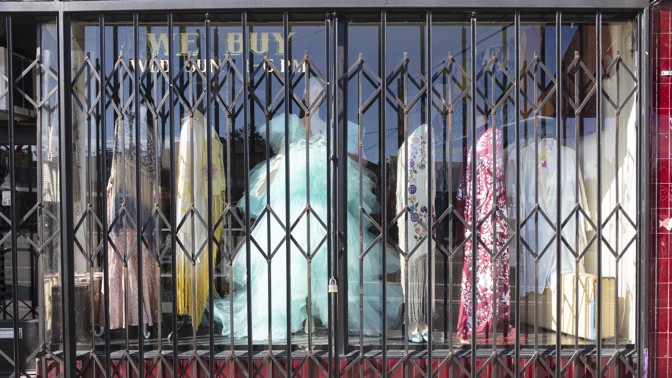Every weekday evening, our editors guide you through the biggest stories of the day, help you discover new ideas, and surprise you with moments of delight. Subscribe to get this delivered to your inbox.
The COVID-19 Crash

The American economy is about to endure a once-in-a-generation kind of retooling, one that’ll both decimate and reshape our storefronts. As this recession deepens, keep your eye on these four economic trends, as noted by our writers:
Many mom-and-pop shops won’t make it.
The great die-off is here, our staff writer Annie Lowrey reports. “Small businesses went into this recession more fragile than their larger cousins,” she explains. And congressional relief has been “too complicated, too small, and too slow for many firms.”
Big businesses will own a larger chunk of the economy.
Or, as Annie puts it: “The pandemic will mean the triumph of franchise chains over mom-and-pop shops, of C-suite executives over entrepreneurs working in their basements.” And the U.S. economy will be less competitive as a result.
That’ll leave cities feeling awfully similar …
… perhaps triggering an exodus. “Many thousands of young people who might have giddily flocked to the most expensive downtown areas may assess the collapse in living standards and amenities and decide it’s not worth it,” Derek Thompson, who wrote about American’s shrinking cities, argues.
Deliveries will replace face-to-face transactions.
Online shopping is predicted to take up a greater share of total retail sales. “If stores are off-limits to the masses, then mass commerce must shift to the internet,” Derek points out.

One question, answered: Should I get an antibody test right now?
Our health staff writer James Hamblin weighs in:
I would recommend it, but only if you’re part of a research study where your results are contributing to an understanding of what results actually mean. Otherwise, it’s generally not advisable to get tests unless we know what to do with the results, and we don’t yet.
What to read if … you just want practical advice:
View all of our stories related to the coronavirus outbreak here.As many stay-at-home orders expire and many businesses reopen, do you have questions about what's safe to do and what isn’t? Send them to us.

Every Monday, Lori Gottlieb answers questions from readers about their problems, big and small. This week she advises a reader who doesn’t want to burden their therapist during the COVID-19 pandemic:
I’ve seen several TV interviews with therapists talking about how bogged down they are with their patients in crisis now. I just don’t want to do that to him. I think that giving him the gift of time may be what he needs right now.
He always talks to me about “the right of self-protection” and how I don’t have to “take care of him.” Still, most people may want to gravitate toward their therapists even more at this time of crisis, and I want to take the pressure off of him and give him some space to deal with his own feelings. He’s only human.
Read the rest, and Lori’s response. Write to her anytime at dear.therapist@theatlantic.com

Over the weekend, the internet was abuzz (sorry) over reports that a deadly Asian hornet had been spotted in the western U.S., threatening to wipe out America’s honeybee population.
While local bees might not stand much of a chance against this powerful species, Japanese bees, which co-evolved with the hornets, can fight back. Our staff writer Ed Yong, who writes about all sorts of extraordinary animal behavior, explains their brutal technique:
In large numbers, the bees dogpile an individual hornet, encasing it in a ball of bodies. This behavior is called “heatballing.” It raises the carbon-dioxide concentrations within the ball to 100 times that of ambient air, and the temperature to more than 113 degrees Fahrenheit—a level the bees can withstand but the hornets cannot. The hornets choke and cook, and the beehive is saved. Bees are a reminder that even during the current pandemic, billions of tiny dramas are playing out around us.
Sign yourself up for The Daily here.
from The Atlantic https://ift.tt/2WxMI1c






0 comments:
Post a Comment